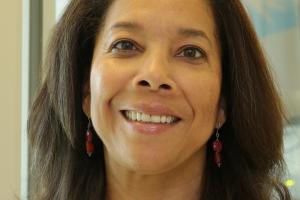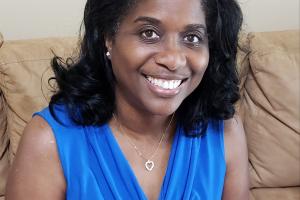
Description
Psychologist, patient advocate, founder and executive director of Cayenne Wellness Center and Children’s Foundation
Her story: From a young age, Carolyn Rowley always had a strong faith and dreamed of one day working as a missionary to improve people’s lives. In a sense, she has fulfilled that dream by embarking on what she considers a divine mission as an advocate for those living with sickle cell disease in California. As founder and executive director of Cayenne Wellness Center and Children’s Foundation, Rowley has spent nearly 20 years working to reduce the barriers and discrimination faced by individuals with sickle cell disease while increasing awareness among patients, providers, and the public. But she’s not just an advocate; Rowley also is a patient. She experiences the very struggles of those who live daily with the painful disease and yet is determined to create a brighter, more equitable future.
Her motivator: “Years ago, I was introduced to an 18-year-old patient named Bobby. He was depressed and in pain and had given up. He died a slow death, but there was so much living he needed to do. Today, I focus my attention on what I can do to help. I don’t want another patient to suffer a death like Bobby’s.”
Biggest challenges: “I go to about 6 or 7 funerals a year for people who have passed away from complications of sickle cell disease. I think that many of these deaths could have been avoided with better access to quality care.” She says other big challenges include patient access to resources for transportation, housing, mental health, and access to legal services.
Underrecognized need: “We need more compassion and love in the hospital setting. Healthcare workers are too stressed out, and sickle cell patients are suffering as a result. Something unique about me is that when I go into the hospital with a sickle cell pain episode, I encourage the staff to dance. It provides a stress release, they feel more open. I’m able to get them to relax in a stressful situation and loosen up. It may not work for everyone, but that works for me.”
Her dream: “First and foremost, it will be great to have a universal cure for sickle cell disease. Until such time, my hope is that physicians and other providers will become more knowledgeable about sickle cell disease and get specialized training in managing and treating the disease. The guidelines for best practices exist, but providers aren’t using them. I think that leads to patients being mistreated or undertreated.”



